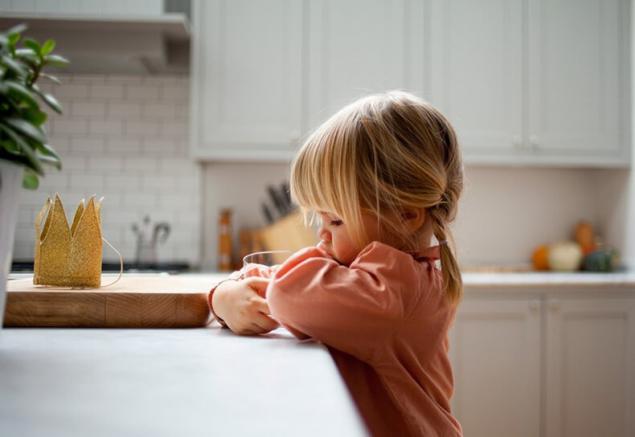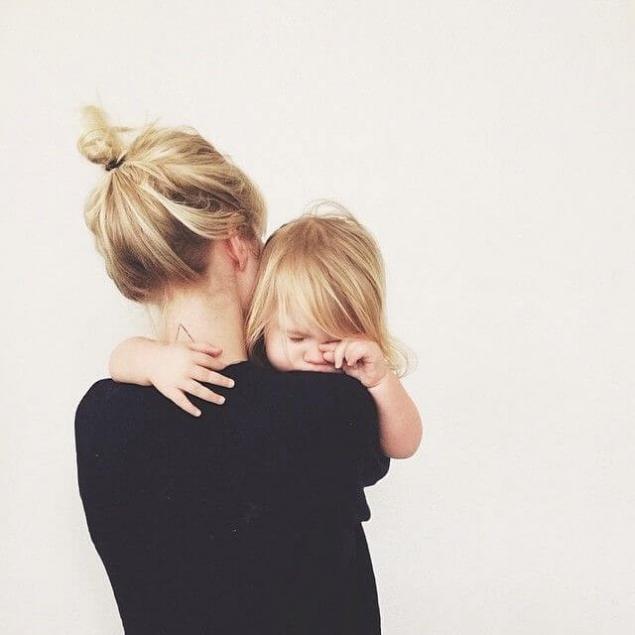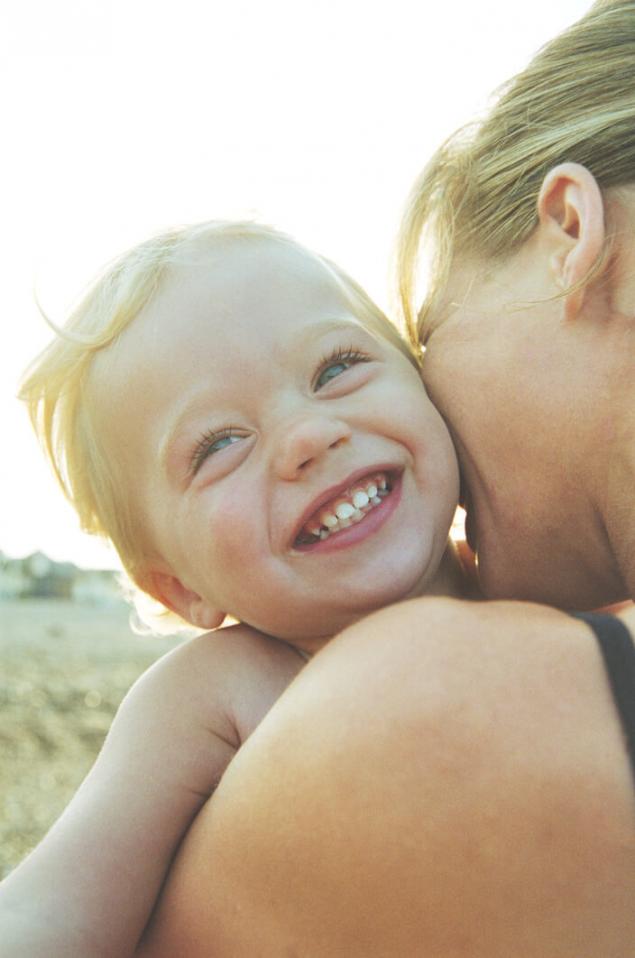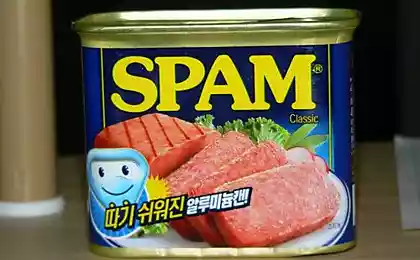440
Don't make the mistake of punishing the child
Almost every parent from time to time resorted to punishment. In General, this is nothing wrong, if punished correctly. But the question is what we mean by the concept of "punishment" and how we do it.
Today I want to talk about only one parental error that hurts the baby is probably the hardest. It's about the fact that punishing a child, parents are often humiliated him as a person.

If this happens often enough, it leads to very sad consequences:
The list goes on...
Whether the rise of the child that was abused, a full-fledged harmonious personality that will feel harmony with the world, learn to be happy, reach their potential and fulfills its mission in this life? The question is rhetorical, and the answer is sad.
Sometimes the time of punishment (particularly unfair or humiliating) remains in the memory of the child forever, leaving a bitter taste for life. Some of those who now reads these lines, will probably remember this incident from his childhood.
Much especially need fathers to watch how they discipline their daughters. Of course, all children deserve to be treated with respect. But I'm in a relationship of father and daughter see the thin and fragile thread... by Punishing the daughter, the father must remember that it is the future female (though small now) and from his father from the first she learns of a treatment deserved by men.
Therefore, all parents absolutely must learn to carefully monitor their words and actions, to learn to govern themselves. If we can't even cope themselves, then how are you going to get along with children and what kind of role model show them? After all, it is obvious that children are a large part of the information is not RECEIVED (via our instructions from books or lessons at school), and ABSORB (read, with our actions, learn from our behavior, recording it all on the tablets of the subconscious).

What can I do to learn to control themselves better and to punish, without humiliating the child:
1. Think, would you, for example, with his mother (guest in your home, a friend, etc.), if she committed the same or similar thing (forgot something, even though you asked, broke the Cup, I didn't get a thing)? Would you say the same thing to her that now her child? Would have thrown it in her face thing that she didn't get? No? Why? Mother deserves more respect than a child? Or the child is not yet a person?
2. The second method is obvious and known to everyone but rarely used. Switch places with your child. You are small, parents were asked several times not to do what makes your baby now, but you again forgot about it. And your parents punished you as you are now his child. How does it feel? How I feel about him at this point? How does that affect you? How would like to do in this situation? Remember the last vivid scene with your child and scroll it again in his memory, answering the questions mentioned above.
3. To learn how to control their words. To paraphrase: "Before you do something to your child, make thee", or simply "Do unto others as you would have them do unto you." Simple words the most profound book on Earth, which we so stubbornly do not want to hear. Sadly, but with strangers we are often more polite and tolerant than the most expensive ones.
If we turn to the origins of the word, we will see that it comes from the word "mandate". Parents punish the child how to act. These are the words of the wise parting words, but no insults or flogging.

The Bible says that children should not be punished in anger. This is obvious, because in anger and you can tell not to commit the act, which you'll regret later. So first you need to calm down, to think, and then already to resort to punishment.
Also the Bible says: "Parents, do not exasperate your children". I.e. the child should not feel resentment toward parents, anger at him, helplessness or powerlessness, a secret desire to take revenge (as children often do, only when they grow up). On the contrary, he should feel wise guidance, reliable support and secure dependence on the parents (on the theory of secure attachment and dependence recommend to know more, it is very important information for each family member!).
9 principles of noble education, which are relevant in the twenty-first century
9 ways to be good parents, doing nothing
Aerobatics is, of course, parenting without punishment. But first, let us try to abandon the punishments which hurt the child's personality.
Now come to your children and hug them, say kind words – just like that!
Let's raise children in love and respect is the most valuable gift that we can do.published
Author: Tatyana Ivanko
Source: real-parents.ru/ne-sovershayte-etu-oshibku-nakazyivaya-rebenka.html
Today I want to talk about only one parental error that hurts the baby is probably the hardest. It's about the fact that punishing a child, parents are often humiliated him as a person.

If this happens often enough, it leads to very sad consequences:
- the inferiority complex
- low self-esteem,
- the lack of self-esteem,
- the lack of faith in yourself and your strength,
- difficulties in relationships with other children and people
- problems with studying...
The list goes on...
Whether the rise of the child that was abused, a full-fledged harmonious personality that will feel harmony with the world, learn to be happy, reach their potential and fulfills its mission in this life? The question is rhetorical, and the answer is sad.
Sometimes the time of punishment (particularly unfair or humiliating) remains in the memory of the child forever, leaving a bitter taste for life. Some of those who now reads these lines, will probably remember this incident from his childhood.
Much especially need fathers to watch how they discipline their daughters. Of course, all children deserve to be treated with respect. But I'm in a relationship of father and daughter see the thin and fragile thread... by Punishing the daughter, the father must remember that it is the future female (though small now) and from his father from the first she learns of a treatment deserved by men.
Therefore, all parents absolutely must learn to carefully monitor their words and actions, to learn to govern themselves. If we can't even cope themselves, then how are you going to get along with children and what kind of role model show them? After all, it is obvious that children are a large part of the information is not RECEIVED (via our instructions from books or lessons at school), and ABSORB (read, with our actions, learn from our behavior, recording it all on the tablets of the subconscious).

What can I do to learn to control themselves better and to punish, without humiliating the child:
1. Think, would you, for example, with his mother (guest in your home, a friend, etc.), if she committed the same or similar thing (forgot something, even though you asked, broke the Cup, I didn't get a thing)? Would you say the same thing to her that now her child? Would have thrown it in her face thing that she didn't get? No? Why? Mother deserves more respect than a child? Or the child is not yet a person?
2. The second method is obvious and known to everyone but rarely used. Switch places with your child. You are small, parents were asked several times not to do what makes your baby now, but you again forgot about it. And your parents punished you as you are now his child. How does it feel? How I feel about him at this point? How does that affect you? How would like to do in this situation? Remember the last vivid scene with your child and scroll it again in his memory, answering the questions mentioned above.
3. To learn how to control their words. To paraphrase: "Before you do something to your child, make thee", or simply "Do unto others as you would have them do unto you." Simple words the most profound book on Earth, which we so stubbornly do not want to hear. Sadly, but with strangers we are often more polite and tolerant than the most expensive ones.
If we turn to the origins of the word, we will see that it comes from the word "mandate". Parents punish the child how to act. These are the words of the wise parting words, but no insults or flogging.

The Bible says that children should not be punished in anger. This is obvious, because in anger and you can tell not to commit the act, which you'll regret later. So first you need to calm down, to think, and then already to resort to punishment.
Also the Bible says: "Parents, do not exasperate your children". I.e. the child should not feel resentment toward parents, anger at him, helplessness or powerlessness, a secret desire to take revenge (as children often do, only when they grow up). On the contrary, he should feel wise guidance, reliable support and secure dependence on the parents (on the theory of secure attachment and dependence recommend to know more, it is very important information for each family member!).
9 principles of noble education, which are relevant in the twenty-first century
9 ways to be good parents, doing nothing
Aerobatics is, of course, parenting without punishment. But first, let us try to abandon the punishments which hurt the child's personality.
Now come to your children and hug them, say kind words – just like that!
Let's raise children in love and respect is the most valuable gift that we can do.published
Author: Tatyana Ivanko
Source: real-parents.ru/ne-sovershayte-etu-oshibku-nakazyivaya-rebenka.html























